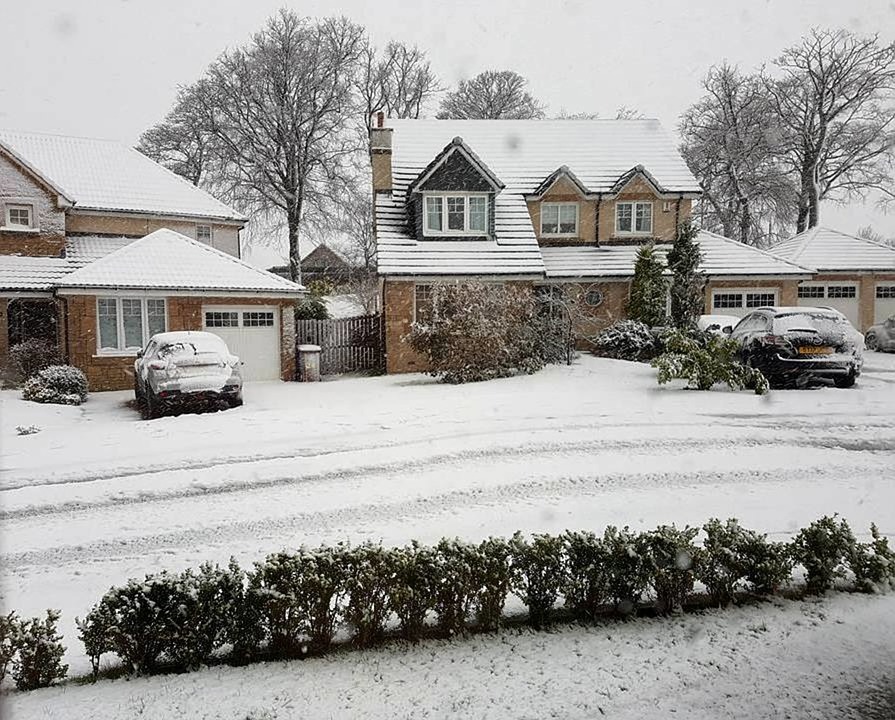Certain, Likely, Unlikely, Impossible
Cierto, Probable, Improbable, Imposible
Start Practice
Iniciar la práctica
Learn in two languages:
spanishHow to Use Certain, Likely, Unlikely, and Impossible
Cómo utilizar los términos "seguro", "probable", "improbable" e "imposible".
How to Use Certain, Likely, Unlikely, and Impossible
Cómo utilizar los términos "seguro", "probable", "improbable" e "imposible".
How likely is it to snow tomorrow? ⛄
¿Qué probabilidad hay de que nieve mañana?
Depending on where you live and the time of year, you may say:
Dependiendo de dónde vivas y de la época del año, puedes decir:
Impossible, Unlikely, Likely, or CertainImposible, improbable, probable o seguro
These are probability words.
Son palabras de probabilidad.
What is Probability?
¿Qué es la probabilidad?
What is Probability?
¿Qué es la probabilidad?
Probability is the chance that something is going to happen.
La probabilidad es la posibilidad de que algo ocurra.
Let's think the probability of snow. ⛄
Pensemos en la probabilidad de nieve.
👉 If you live in a place where it always snows, then your answer will be "certain". We are very sure that it will snow.
Si vives en un lugar en el que siempre nieva, tu respuesta será "seguro". Estamos muy seguros de que nevará.
👉 Now, if you live in a country where it never snows, then your answer will be "impossible". There is no way that it will snow there tomorrow.
Ahora bien, si vives en un país en el que nunca nieva, tu respuesta será "imposible". Es imposible que allí nieve mañana.
👉 If you live in a place where it almost always snows, then your answer will be "likely".
Si vive en un lugar donde casi siempre nieva, su respuesta será "probablemente".
Now, if you live in a place where it sometimes snows, but not often, then your answer will be "unlikely".
Ahora bien, si vives en un lugar donde a veces nieva, pero no a menudo, entonces tu respuesta será "poco probable".
Let's try another example where we can use these probability words. 😎
Intentemos otro ejemplo en el que podamos utilizar estas palabras de probabilidad.
Gum-Balls in a Bag
Bolas de chicle en una bolsa
Gum-Balls in a Bag
Bolas de chicle en una bolsa
Let's say you have a bag of gum-balls.
Digamos que tienes una bolsa de bolas de chicle.
You want to share them with your friends. They cover their eyes and pick one randomly.
Se tapan los ojos y eligen uno al azar.
What are the chances that a blue gum-ball will be picked?
¿Qué posibilidades hay de que se elija una bola de chicle azul?
👉 All the gum-balls are blue. So, it's certain that a blue gum-ball will be picked.
Todos los chicles son azules, por lo que es seguro que se elegirá un chicle azul.
What are the chances that a red gum-ball will be picked?
¿Qué posibilidades hay de que se elija una bola de chicle roja?
👉 None of the gum-balls are red. So, it's impossible that a red gum-ball will be picked.
Ninguna de las bolas de chicle es roja, por lo que es imposible que se elija una bola de chicle roja.
Another Bag of Gum-Balls
Otra bolsa de chicles
Another Bag of Gum-Balls
Otra bolsa de chicles
Now, imagine you have a different bag of gum-balls.
Ahora, imagina que tienes otra bolsa de chicles.
Your friends cover their eyes and pick one randomly.
Tus amigos se tapan los ojos y eligen uno al azar.
What are the chances that an orange gum-ball will be picked?¿Qué posibilidades hay de que se recoja una bola de chicle naranja?
8 gum-balls are orange. 2 gum-balls are green.
8 bolas de chicle son naranjas. 2 bolas de chicle son verdes.
There are more orange than green gum-balls.
Hay más bolas de chicle naranjas que verdes.
👉 So, it's likely that an orange gum-ball will be picked.
Por lo tanto, es probable que se elija una bola de chicle naranja.
What are the chances that a green gum-ball will be picked?¿Qué posibilidades hay de que se recoja una bola de chicle verde?
There are fewer green gum-balls than orange.
Hay menos chicles verdes que naranjas.
👉 So, it is unlikely that a green gum-ball will be picked.
Por lo tanto, es poco probable que se recoja una bola de chicle verde.
Now, what are the chances that your parents will let you have a gum-ball? 😉😜
Ahora, ¿qué posibilidades hay de que tus padres te dejen tener una bola de chicle?
Great job!
¡Grandioso trabajo!
Now, use what you learned in the practice. 💪 You'll remember for longer.
Ahora, utiliza lo que has aprendido en la práctica, lo recordarás durante más tiempo.
Start Practice
Iniciar la práctica
Complete the practice to earn 1 Create Credit
1,000 Create Credits is worth $1 in real AI compute time.
1 Create Credit is enough to get 1 question answered, or to generate 1 image from text, in the tools tab.
1,000 Create Credits is worth $1 in real AI compute time.
1 Create Credit is enough to get 1 question answered, or to generate 1 image from text, in the tools tab.
Teachers:










